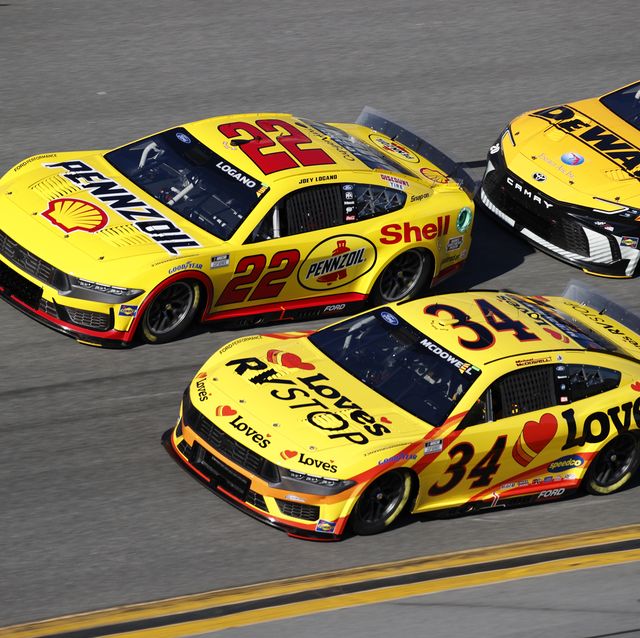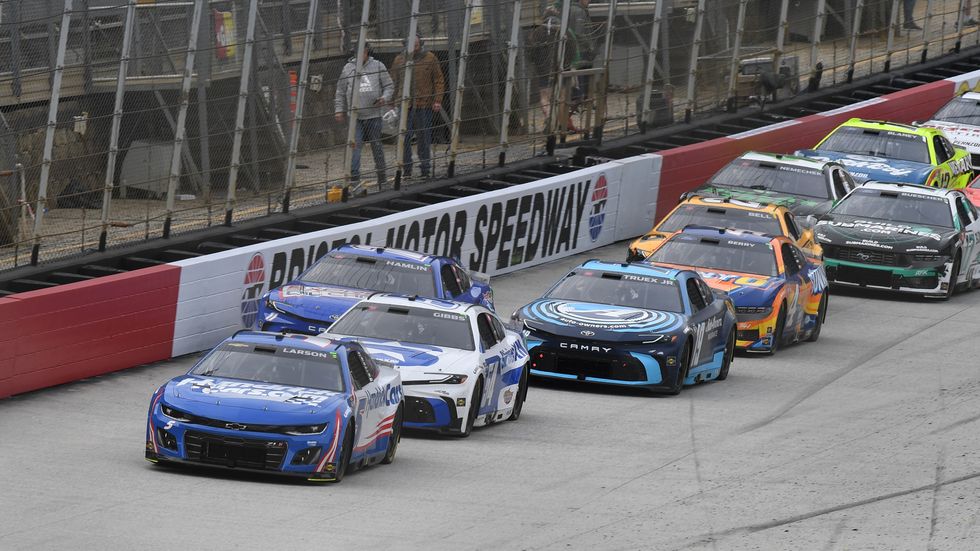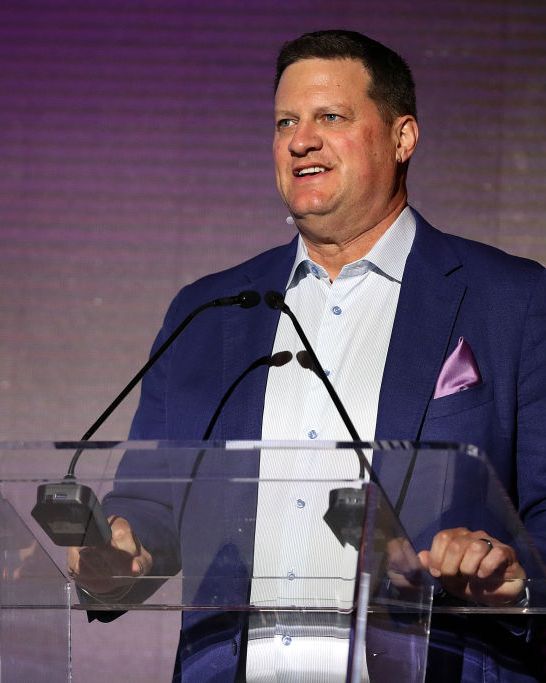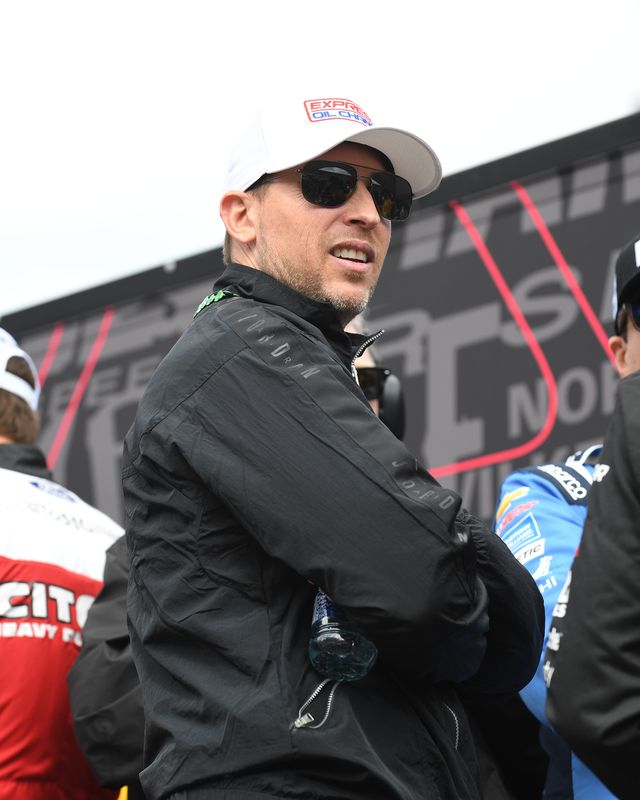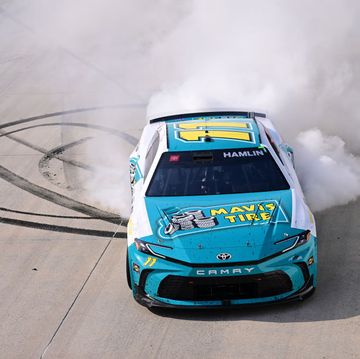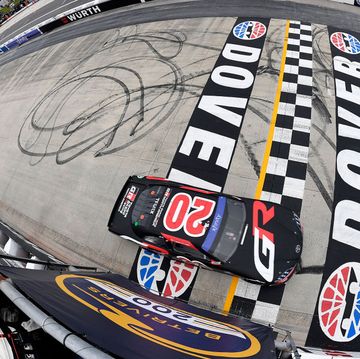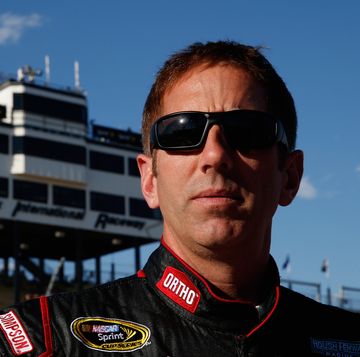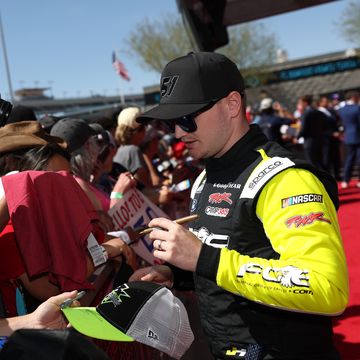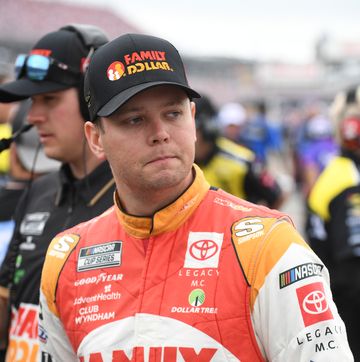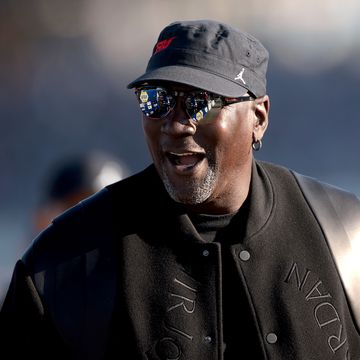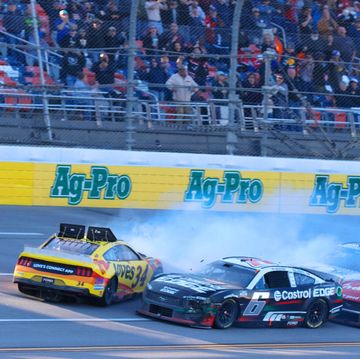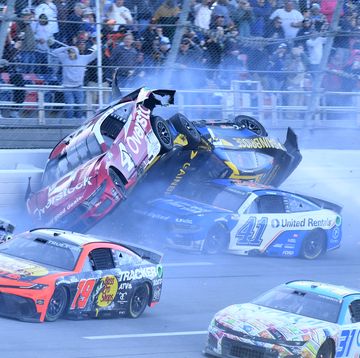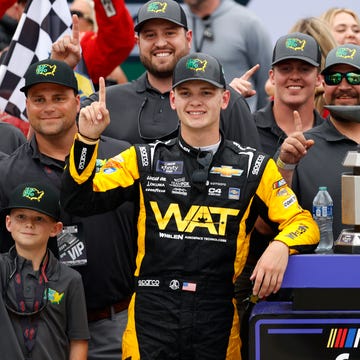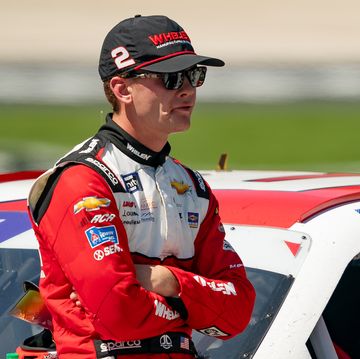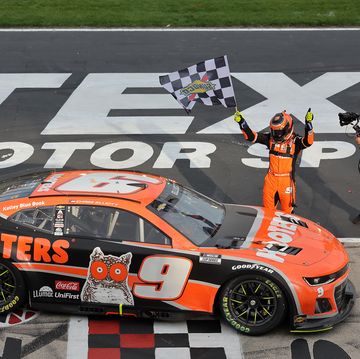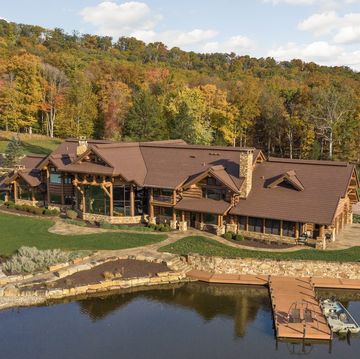- NASCAR drivers say an increase from 670 to upwards of 1,000 horsepower would greatly improve the on-track product.
- NASCAR officials say boosting horsepower will be an expensive change that won’t dramatically improve competition and might even dissuade new manufacturers from wanting to enter the series.
- Driver Kyle Larson finds NASCAR's “we consider everything” line to improve the racing largely hypocritical.
The very public debate about horsepower raging between NASCAR officials and their Cup Series drivers has overshadowed almost everything else through the year’s first five races.
Sadly, there appears no easy resolution since both sides seem to be standing firm.
In this corner: drivers seeking more horsepower in their cars. They say an increase from 670 to upwards of 1,000 would greatly improve the on-track product and help the sport regain fans lost in recent years. Bristol, for example, once had consistent six-figure sellouts. It was about half-full for its recent 500-lap show.
In this corner: officials who say boosting horsepower will be an expensive change that won’t dramatically improve competition and might even dissuade new manufacturers—Honda, to be specific—from wanting to enter the series. Drivers question whether horsepower issues would keep a new manufacturer from coming in, as Toyota did in 2007.
That “coming in” reason doesn’t fly with 2021 champion Kyle Larson of Hendrick Motorsports. “I feel they’ve always used the excuse of, ‘we’re trying to keep the horsepower to where other manufacturers might want to come in,’ ’’ he recently said on Dale Earnhardt Jr.’s popular Dirty Mo Media podcast. “As long as I’ve been in the sport (10 years), it’s been the same three manufacturers. Maybe somebody else is coming and maybe they’re the ones pushing for the horsepower, but I’ve yet to see anybody new come in.”
NASCAR official Brad Moran addressed that very question during his recent appearance on Sirius XM Radio. He said any horsepower change would have a major ripple effect, including potentially scaring off new manufacturers. He also said he didn’t think the engine bill would be the same if horsepower were increased as some drivers want.
“Once we open up horsepower, all three manufacturers must be on board,” Moran explained. “As soon as you do, there’s going to be development and reliability issues, and you’re putting that cost back into the engine-builder’s category. The number we’re at is where we want to be to get new manufacturers interested. And if we start getting away from that number, it can create problems. But we’re always open to everything, and we consider everything.”
Larson finds that “we consider everything” line largely hypocritical. “At least try it,” this year’s Las Vegas winner said. “Just take us to—I don’t know—Richmond or wherever. Go test. Go to Martinsville. Go test and try it out.”
Past champion (2014) Kevin Harvick included the horsepower question on his Happy Hour podcast after Phoenix, where teams had an aero package different from the ones on the longer, faster tracks at Daytona Beach, Atlanta, and Las Vegas.
“There were a lot of things positive about the package at Phoenix,” Harvick said, “but I still think it’s gotta have more than 1,000 horsepower. For the life of me I cannot understand why we want to keep spending millions and millions of dollars on CFD, and wind tunnels, and changing parts and changing pieces. I don’t understand why we just don’t want them to blow the back tires off the car.”
At Phoenix, during last year’s Championship Weekend, NASCAR’s chief operating officer, Steve O’Donnell, said “everything is up for consideration” when asked about increasing horsepower. “You have to factor in what are the costs involved as well?” he said during his annual “State of the Sport” message.
“It’s not as simple as just upping the horsepower,” he cautioned. “You better be ready for all your (manufacturers) to be onboard. It better make sense for any potential new manufacturer and technology. It’s not just a short-term answer.”
Denny Hamlin, the second-winningest active Cup driver (52 after Bristol last weekend), told his Actions Detrimental podcast audience that more horsepower would help improve racing. He asked NASCAR to at least test with higher-horsepower engines in an effort to bring some closure to the debate. To now, NASCAR hasn’t seemed willing to schedule any tests like Hamlin and Larson have suggested.
Hamlin said the change could come with one phone call. “You just call Doug Yates (engine-builder for Ford teams) and Toyota Racing Development and say we’re going to go back to our old 750 (horsepower) plate,” he said. “They’ve said it wouldn’t change any of the durability we have. It can be done with one phone call with no additional money.”
As for why he wants more horsepower: “It is hard to pass because we’re all in the gas so much,” he said. “You have to get us out of the gas, whether through the tire or the horsepower. That combination is what makes passing so difficult. The more you can get us out of the gas, which means if we have more horsepower, we have to let off sooner, that gives us the opportunity to overtake. Fifty horsepower – while it may not be a game changer – any horsepower gain will be an advantage for passing.
Michael McDowell—a Daytona 500 and Indy Grand Prix winner—has a dissenting opinion. “Anytime cars go faster, the racing separates,” he said at Bristol. “Look at the fastest cars on the planet (F1), where the racing isn’t very good. Look at some of the slowest racing on the planet, Mazda Miata MX 5, where it’s some of the best racing you’ve ever seen.
“So, going faster will not make racing better. It’ll make it harder for drivers and more challenging and fun because we’ll be sliding around and laying streaks off the corner. But there’s not going to be more passes for the lead, not more cars on the lead lap, and it’s not going to make the racing better. I don’t think more horsepower would change the racing a whole lot.”
Stay tuned. This isn’t going away anytime soon.

Unemployed after three years as an Army officer and Vietnam vet, Al Pearce shamelessly lied his way onto a small newspaper’s sports staff in Virginia in 1969. He inherited motorsports, a strange and unfamiliar beat which quickly became an obsession.
In 53 years – 48 ongoing with Autoweek – there have been thousands of NASCAR, NHRA, IMSA, and APBA assignments on weekend tracks and major venues like Daytona Beach, Indianapolis, LeMans, and Watkins Glen. The job – and accompanying benefits – has taken him to all 50 states and more than a dozen countries.
He’s been fortunate enough to attract interest from several publishers, thus his 13 motorsports-related books. He can change a tire on his Hyundai, but that’s about it.
